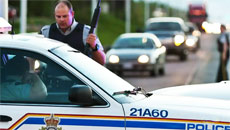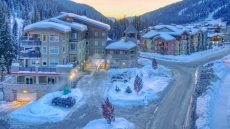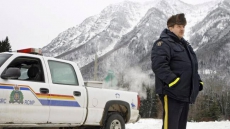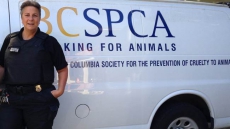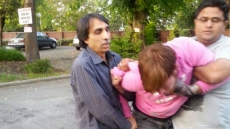GARDEN HILL FIRST NATION, Man. — The 11-year-old girl was last seen walking home from a birthday party.
Teresa Robinson's remains were found in May by searchers on the Garden Hill First Nation in northern Manitoba. It was initially thought she had been attacked by a bear, but police soon ruled the death homicide.
Now, after nine months without an arrest, RCMP have taken an unusual step to find her killer.
Officers have asked all males ages 15 to 66 in the remote, fly-in community to volunteer samples of their DNA.
It's a pool of about 2,000 people.
Mounties say it's the largest DNA sweep they're ever tried in the province and possibly in the country.
Toronto lawyer Enzo Rondinelli says he's only heard of past sweeps in Canada involving hundreds, not thousands of people.
And while a DNA match can crack an unsolved case, Rondinelli says these sweeps often focus on the people who refuse to participate.
"It may be narrowing it down to those who say no. Because police then say, 'Well, hmm, I wonder why the person is saying no.'
"In the eyes of the police, you may now seem suspicious and may actually now come in the crosshairs of a much more greater surveillance than you otherwise would have."
The lawyer says officers can follow those who refuse and legally pick up anything they throw away in public — a cigarette butt, piece of gum or Tim Hortons cup — to obtain their DNA.
Rondinelli also teaches a course in forensic science and the law at the University of Toronto and has written an academic article about what he calls "DNA dragnets."
Although there have been many cases in the United States, he only knows of a handful in Canada and doesn't think any accused has successfully fought the technique here in court.
Officers who ask for a mouth swab or finger prick need to be careful, Rondinelli says. They must inform people that they have the right to decline and ask to speak with a lawyer. Volunteers must also sign consent forms.
In exchange, police typically agree samples will only be used in a single investigation and will be destroyed if they don't prove a match.
In trying to catch Teresa's killer, Rondinelli believes Mounties are asking for male volunteers, not female, because DNA left behind at a crime scene can reveal an offender's sex.
He says he would advise clients against volunteering DNA because it's their right and police can get it in other ways. And he, adds, labs can make mistakes.
Grand Chief Sheila North Wilson, who represents northern First Nations, says a DNA sweep may be unusual, but she supports the plan. People in the community want to see RCMP taking more action on the case.
"Especially in an isolated community, you'd think it would be much easier to figure out who it is. But clearly it's not," she says.
Teresa's mother, Sandra Robinson, recently told media she believes the killer is someone on the reserve, and it's left her mistrusting everyone.
Several men who have already volunteered their DNA said they did so because they have nothing to hide and want to help.
Sgt. Bert Paquet wouldn't reveal how many males have stepped up so far, but says there has been "no lack of volunteers."
He also wouldn't confirm if DNA was found with Teresa's remains or if investigators have come up with any suspects. He says officers had to take care of "other steps" before they could start a DNA canvass.
Volunteered samples will not be used for other criminal investigations, Paquet says, and will be destroyed when Teresa's case is solved.
Officers travelled to the reserve about a week ago to collect samples and will likely make another three or four trips, he says. They may also go door-to-door to remind males about the effort.
Lab staff who do the tests have been notified and are capable of taking on the huge task, Paquet says, adding DNA testing is much faster and cheaper than it used to be.
And in Teresa's case, no matter how high the number of samples, the sweep needs to be done, he says.
"There is someone out there that we believe is responsible for Teresa Robinson's death. And our investigators, as well as the community and the family, will do absolutely anything that is legal to identify and prosecute that person."
